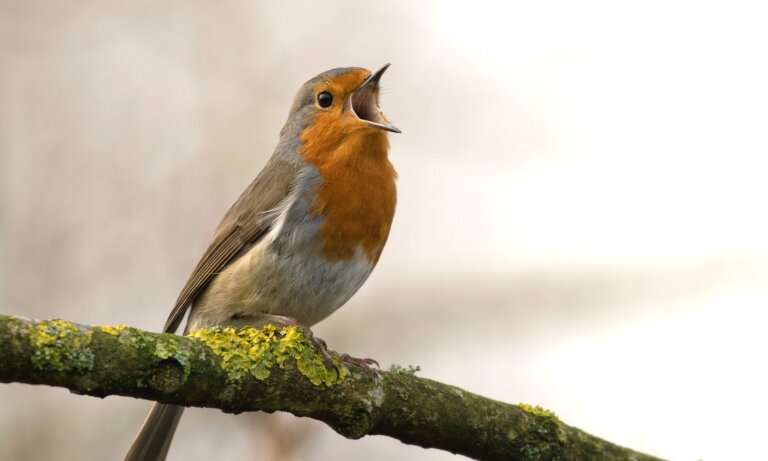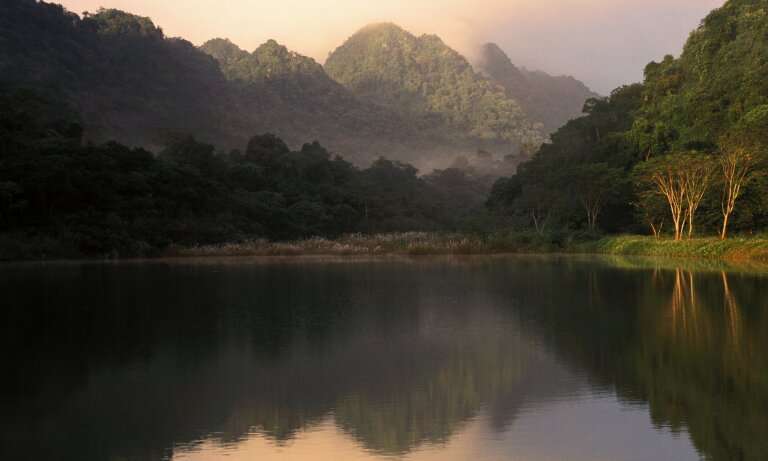Repairing nature and 'building back better' in a post-COVID world

,The coronavirus pandemic has provoked a social, environmental and economic crisis unparalleled in the modern era. It is widely recognised, however, that crises represent unique opportunities for change. Rebecca Solnit, who specialises in human responses to crises, describes how in a crisis "what is weak breaks under new pressure, what is strong holds, and what was hidden emerges."
Economies have broken, communities have held and, critically, nature has emerged. From the likely origins of COVID-19, to the historic drop in pollution, to louder birdsong and deserted city streets taken over by wildlife, we have been reminded we are a part of nature, not apart from it. The task now is to embed nature within systemic frameworks so it leads decision-making processes—nature first, not last.
And as the responses to this crisis have already shown, we are moving into uncharted waters. Decisions are being taken and behaviour being changed in ways that would have been unthinkable just weeks before. The crisis is also driving a shift in what is on the table for discussion when it comes to government and business responses.
The specific implications of the pandemic for nature and conservation are still playing out, but some are already clear.
Environmental implications of COVID-19
The fact that COVID-19 emerged as a result of the destruction of nature has prompted increased awareness of the relationship between nature and human health. Conservationists and human health experts have long recognised links between environmental health and human health, and the pandemic has seen these conversations break out further into the mainstream.
One of the most visible implications of the pandemic was the immediate fall in pollution levels and the increased visibility of nature in response to the ceasing of economic activity. While it is likely that in the immediate term pollution will return as economies start back up, a taste of neighbourhoods with lower pollution, fewer cars and more visible nature could encourage policy that promotes these benefits. On the business front, there is already evidence that companies with stronger environmental, social and governance criteria are performing better than others. The pandemic may therefore promote a different attitude towards areas too many business still see as a distraction from profits.
In a number of respects however, environmental awareness has reduced, with key government meetings related to climate change and biodiversity postponed. More insidiously, the crisis has provided cover for governments to relax or scrap environmental goals and standards. China has dropped many of its green 'ecological civilisation' goals, the EU is pausing action on its Biodiversity and Farm to Fork strategies and the Scottish government has delayed publication of its Climate Change Plan. In the US, the Environmental Protection Agency (EPA) has said it will not carry out routine monitoring of pollution and will not pursue penalties against corporate polluters.

Fork in the road
The world is at a critical point in the road. COVID-19 demonstrated that when a threat is clear, accepted and communicated, people are willing to make extraordinary and immediate changes to the way they live. And these changes will need to be made, because the severity of the impacts of a pandemic pale into insignificance when compared with the projected impacts of other environmental threats. The World Economic Forum's 2020 Global Risks Report classed all five environmental risks (climate change, biodiversity loss, extreme weather, natural disasters and human-caused natural disasters) as greater than the threat from infectious diseases in terms of impact and likelihood.
The question now is, can we use this crisis to popularise alternative stories, stories where natural, human and social capital is valued above man-made capital, where progress is defined by people's actual well-being, rather than solely by, economic growth or financial profit?
Building back better
Fortunately there already are increasingly well-developed stories to rival the status quo. But they are not necessarily stories with nature at their heart. Protecting nature requires economic change, social change and policy change. The challenge is to ensure environmental values are integrated into the various ideas that are forming to 'build back better', and to ensure the stories support one another rather than compete for attention. Some facets of that story include:
- Recognising the biosphere as the foundation to human well-being, with intrinsic relationships to human health, to human nutrition and to the regulation of the planetary systems upon which almost every aspect of human life depends.
- Redefining the idea of "human nature." People are innately altruistic, empathetic and cooperative, not merely the individualistic and competitive 'economic beings' and consumers they are assumed and conditioned to be in many parts of the world. The pandemic has brought values such as appreciation of key workers, spending time with families, communities, and in nature to the fore. Many people have a deep connection to their environment, over and above the immediate benefits it provides.
- Redefining economic frameworks to focus on the promotion of human well-being and equality within clear environmental and social boundaries, rather than on GDP growth and the accumulation of capital—all inadequate proxies for well-being. Man-made capital cannot exist without the nature that underpins it.
- Matching political frameworks to the new economic frameworks. Governments must focus on their fundamental role of protecting citizens and public assets, including health systems and the environment. The post- pandemic stimulus packages represent the opportunity to set the new frameworks into action.
- Finally, businesses have an opportunity to rewrite their social contract and contribute to a rebooted system. Demonstration of a net positive impact on society and the environments they operate in should be a pre-requisite for operation. The path to a flourishing and job-creating economy post-COVID must come via green business practices, a transition to zero-carbon energy and transport, as well as new and resilient food production systems. Companies that demonstrate these impacts through environmental, social and governance metrics should be supported and rewarded. Companies that do not should be penalised and reformed.
These are just some of the facets of the new story we must tell. Conservationists have an important role to play in telling this story, collaborating with others and ensuring the opportunities for lasting planetary change are seized.
Provided by Fauna & Flora International




















